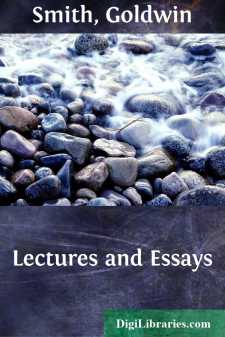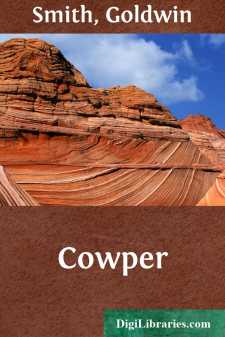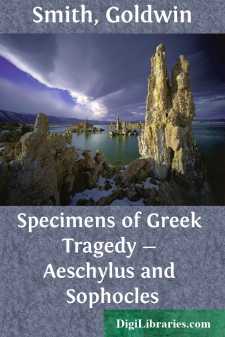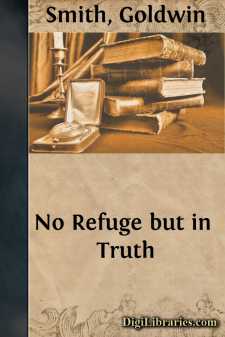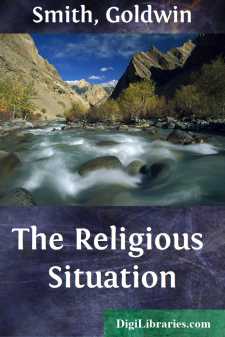Categories
- Antiques & Collectibles 13
- Architecture 36
- Art 48
- Bibles 22
- Biography & Autobiography 813
- Body, Mind & Spirit 142
- Business & Economics 28
- Children's Books 15
- Children's Fiction 12
- Computers 4
- Cooking 94
- Crafts & Hobbies 4
- Drama 346
- Education 46
- Family & Relationships 57
- Fiction 11828
- Games 19
- Gardening 17
- Health & Fitness 34
- History 1377
- House & Home 1
- Humor 147
- Juvenile Fiction 1873
- Juvenile Nonfiction 202
- Language Arts & Disciplines 88
- Law 16
- Literary Collections 686
- Literary Criticism 179
- Mathematics 13
- Medical 41
- Music 40
- Nature 179
- Non-Classifiable 1768
- Performing Arts 7
- Periodicals 1453
- Philosophy 64
- Photography 2
- Poetry 896
- Political Science 203
- Psychology 42
- Reference 154
- Religion 513
- Science 126
- Self-Help 84
- Social Science 81
- Sports & Recreation 34
- Study Aids 3
- Technology & Engineering 59
- Transportation 23
- Travel 463
- True Crime 29
Lectures and Essays
by: Goldwin Smith
Description:
Excerpt
THE GREATNESS OF THE ROMANS
Rome was great in arms, in government, in law. This combination was the talisman of her august fortunes. But the three things, though blended in her, are distinct from each other, and the political analyst is called upon to give a separate account of each. By what agency was this State, out of all the States of Italy, out of all the States of the world, elected to a triple pre-eminence, and to the imperial supremacy of which, it was the foundation? By what agency was Rome chosen as the foundress of an empire which we regard almost as a necessary step in human development, and which formed the material, and to no small extent the political matrix of modern Europe, though the spiritual life of our civilization is derived from another source? We are not aware that this question has ever been distinctly answered, or even distinctly propounded. The writer once put it to a very eminent Roman antiquarian, and the answer was a quotation from Virgil—
"Hoc nemus, hunc, inquit, frondoso vertice clivum
Quis deus incertum est, habitat Deus; Arcades ipsum
Credunt se vidisae Jovem cum saepe nigrantem
AEgida concuteret dextra nimbosque cieret."
This perhaps was the best answer that Roman patriotism, ancient or modern, could give; and it certainly was given in the best form. The political passages of Virgil, like some in Lucan and Juvenal, had a grandeur entirely Roman with which neither Homer nor any other Greek has anything to do. But historical criticism, without doing injustice to the poetical aspect of the mystery, is bound to seek a rational solution. Perhaps in seeking the solution we may in some measure supply, or at least suggest the mode of supplying, a deficiency which we venture to think is generally found in the first chapters of histories. A national history, as it seems to us, ought to commence with a survey of the country or locality, its geographical position, climate, productions, and other physical circumstances as they bear on the character of the people. We ought to be presented, in short, with a complete description of the scene of the historic drama, as well as with an account of the race to which the actors belong. In the early stages of his development, at all events, man is mainly the creature of physical circumstances; and by a systematic examination of physical circumstances we may to some extent cast the horoscope of the infant nation as it lies in the arms of Nature.
That the central position of Rome, in the long and narrow peninsula of Italy, was highly favourable to her Italian dominion, and that the situation of Italy was favourable to her dominion over the countries surrounding the Mediterranean, has been often pointed out. But we have yet to ask what launched Rome in her career of conquest, and still more, what rendered that career so different from those of ordinary conquerors? What caused the Empire of Rome to be so durable? What gives it so high an organization? What made it so tolerable, and even in some cases beneficent to her subjects?...


